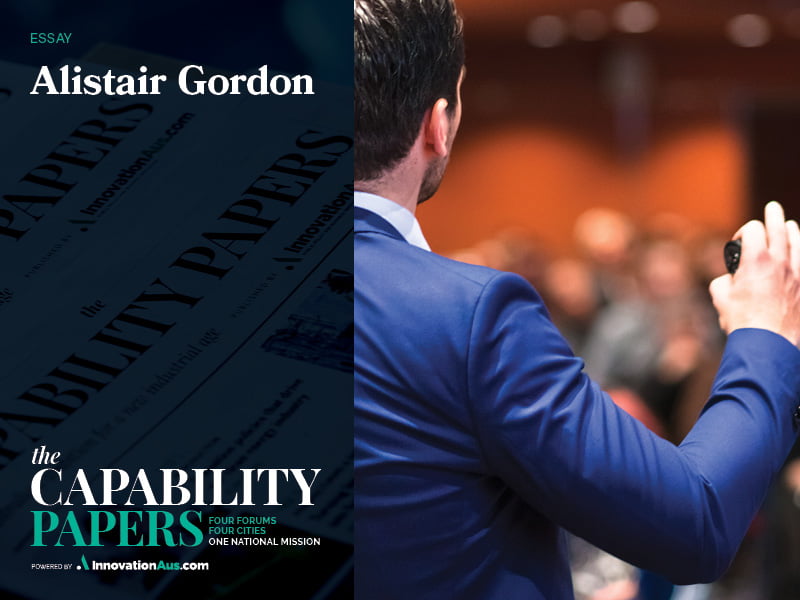The Australian Public Service in 2023 is faced with an extraordinary opportunity to reset its contribution to supporting the government of Australia and all Australians.
Four events occurring almost simultaneously have led to this. Firstly, the election of a new Labor government promising to reduce spending and dependency on external consultants.
Secondly, the astonishing revelations about the PwC scandal, which has pummelled public and government faith in all large consulting organisations. Thirdly, a trend that has been raging below the surface for some time, the war for technical talent where the government is often outgunned by the private sector.

The question is, will the APS respond to this opportunity entirely predictably? Or will it apply innovative new thinking, positioning the APS and everyone working in it, to add great long-term value to the Australian community using in-house capabilities?
How predictable is a predictable response?
A predictable response would be to focus on building new leadership capability within the APS. This would initially involve much discussion and angst on different leadership behaviours fit for a VUCA world, referring to Volatility, Uncertainty, Complexity, and Ambiguity.
It would include many treatises on the importance of a culture shift by senior APS management from risk-aversion to innovative, creative thinking, a focus on new ways of working (an HR favourite), rebooting and refunding the School of Government (championed no doubt by retired public servants seeking something to do).
And there would probably be a restructure or two thrown in for good measure.
This is the predictable, and in our view doomed. And worse, it would be a precursor to a return to the safety of relying on consulting ‘advice’ in a few years’ time, when the public and political memory has been taken over by the next great issue of the day.
It is time for the senior leaders of the APS to think differently, because leadership reviews and organisational restructures are not the answer to the perceived capability gap between in-house experts and external consultants.
Hiding in plain sight
The fact is that there is a wealth of consulting talent that resides in most government organisations that has not been acknowledged or leveraged. This is talent that is hiding in plain sight.
The strategic partners who can explore new opportunities to serve the community better, faster, more efficiently and drive incremental, strategic and disruptive innovation are already right under the noses of senior APS leaders.
They are that large group of existing employees known as technical subject matters experts, sitting in the IT, finance, policy, risk, software development, and science departments.
The problem is that today most of these people don’t look, sound or act the part of a Big Four consultant.
The dependence on external consulting organisations is predicated on the belief that they know best – a belief the major consultancies do everything in their power to propagate, typically through a deluge of ‘thought leadership’.
There is also the illusion that consulting firms are somehow objective and neutral and can see things more clearly than those working inside the organisation. (Remarkably, this is a proposition that PwC has managed to shatter within a matter of weeks).
Let’s be honest, consultancies have far prettier slide decks and process models, and they are staffed with consultants who are engaging, persuasive, and practiced at explaining complex stuff.
But look closely. These consultants aren’t practicing leadership, they are practicing expertship. Expertship is the ability to position oneself and one’s ideas as thought leadership, in a compelling, strategically aligned, easy to understand, customer or community centric manner. This thought leadership is remarkably aligned with the motivations and desires of their target decision-makers (who they have studied, and deeply understand).
In simple terms these are the great consulting skills which master experts – as we describe them – deploy and leverage every day in order to add greater value. To be clear, many times these consulting firms do add great value and clarity to their clients by deploying these skills.
The big question for the senior leadership of the APS is why do these consulting skills not exist within the expert population employed by government departments? Why can’t our experts be like those ‘experts’ from the consulting firms?
Look inside your organisation
In our experience, senior generalist leaders have an entrenched and inaccurate view of technical subject matter experts. They see them as being there to solve technical problems not organisational ones.
Presentations by these technical experts are to be avoided at all costs because they don’t get organisational strategy and are long-winded about technical mumbo jumbo. It’s usually the experts’ way or the highway. Experts see issues only from their siloed technical perspective only, these generalist leaders believe.
On the surface, these biases are grounded in apparent fact. In-house technical experts do tend to struggle to explain things clearly, and their slide decks can be confusing and ugly.
Many in-house technical experts do operate safely in their own technical bubble, and don’t have a whole-of-organisation perspective – or show any interest in acquiring one. They tend to lack the ability to strategical align ideas and proposals, and struggle to calculate return on investment. Many have never read the strategic plan.
So, the evidence appears clear – our in-house experts can’t deliver new value and thinking in the way polished external consultants can.
But this isn’t true. Technical experts are more than capable of learning consulting skills at very high level remarkably quickly. We know this because we have worked with 2,500 of them, and 99 per cent of them can master these skills within months.
Organisations such as APRA, the Reserve Bank of New Zealand, the Victorian state government, US tech giant Bloomberg and many others have proved that if you nurture highly technical experts properly, value-adding thought leaders emerge. Polished consultants even.
It’s nurture, not nature
The problem is not nature (experts are somehow just created like that), it is nurture (where experts have lacked of development of these enterprise skills). Most technical experts only reach expert level.
To become a thought leader (or valued consultant, strategic partner) they need to reach master expert level. Provided the right motivation and development, experts are as able to be strategic as the most seasoned senior leader – perhaps more so because they can uniquely understand what their technical domain knowledge can offer in the long term.
Most experts want to add more value and have more influence and impact. They are passionate about doing so. Perhaps you have witnessed this passion when they are frustrated that no one is listening to them. But they can be their own worst enemies.
They push back on learning the enterprise skills they need to transition from expert level to master expert level. Enterprise skills that include stakeholder engagement, advanced discovery skills, change leadership, collaboration skills, business acumen (we call this market context, which can be community based), elevated communication story telling skills – and so on. All of these are critical consulting skills.
The truth is the answer to building new capability in the APS and reduce the dependence on external consulting is right under the noses of senior leaders. It is in their existing employees.
Most agencies employ a large number of unbelievably talented and committed technical experts, but while spending thousands on developing those who aspire to be people leaders, spend nearly nothing at all on those who aspire to be thought leaders.
They are the very people who can replace the value that external consultants add. It means the APS needs to invest in programs that build the expertship capability in the SMEs.
The challenge is that senior leaders need to become expert-positive, embrace the deep knowledge these experts have, and teach them how to leverage it.
An innovative, confident, self-sustaining citizen-centric organisation will be the result, with millions saved to be deployed on further serving the community, not paying for consulting partner profit shares around Australia.
Alistair Gordon is the CEO, master facilitator and program designer at Expertunity, a global learning company that specialises in helping technical subject matter experts fulfil their potential. Along with his colleagues, he has delivered programs for experts on four continents for organisations in technology, media, utilities, government, medicine, financial services, and manufacturing. He is co-author of the manual on mastery of expertship, ‘Master Expert’, and a self-improvement guide for SMEs, the ‘Expertship Growth Guide’. He is regularly invited to speak to technical audiences about their expertship.
Do you know more? Contact James Riley via Email.

